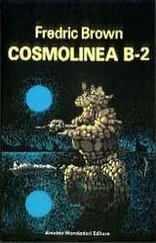Эллен Глазгоу - Barren Ground
Здесь есть возможность читать онлайн «Эллен Глазгоу - Barren Ground» весь текст электронной книги совершенно бесплатно (целиком полную версию без сокращений). В некоторых случаях можно слушать аудио, скачать через торрент в формате fb2 и присутствует краткое содержание. Жанр: Классическая проза, на английском языке. Описание произведения, (предисловие) а так же отзывы посетителей доступны на портале библиотеки ЛибКат.
- Название:Barren Ground
- Автор:
- Жанр:
- Год:неизвестен
- ISBN:нет данных
- Рейтинг книги:3 / 5. Голосов: 1
-
Избранное:Добавить в избранное
- Отзывы:
-
Ваша оценка:
- 60
- 1
- 2
- 3
- 4
- 5
Barren Ground: краткое содержание, описание и аннотация
Предлагаем к чтению аннотацию, описание, краткое содержание или предисловие (зависит от того, что написал сам автор книги «Barren Ground»). Если вы не нашли необходимую информацию о книге — напишите в комментариях, мы постараемся отыскать её.
Barren Ground — читать онлайн бесплатно полную книгу (весь текст) целиком
Ниже представлен текст книги, разбитый по страницам. Система сохранения места последней прочитанной страницы, позволяет с удобством читать онлайн бесплатно книгу «Barren Ground», без необходимости каждый раз заново искать на чём Вы остановились. Поставьте закладку, и сможете в любой момент перейти на страницу, на которой закончили чтение.
Интервал:
Закладка:
Her exultation over Jason's ruinous end had diminished now into an impersonal pity. She had longed to punish him for his treachery; she had hated him for years, until she had discovered that hatred is energy wasted; but in all her past dreams of retribution, she had never once thought of the poorhouse. Even as a question of justice, it seemed to her that the poorhouse was excessive. That terror of indigence which is inherent in self-respecting poverty was deeply bred in her nature, and she knew that her humbler neighbours were haunted by fear of charity as one is haunted by fear of smallpox in a pestilence. Yes, whatever he deserved, the poorhouse was too much. Though the horror of his fate did not lessen the wrong he had done, by some curious alchemy of imagination it reduced the sum of human passions to insignificance. What did anything invisible matter at the gate of the poorhouse?
Though her first impulse, derived from Presbyterian theology, was to regard his downfall as a belated example of Divine vengeance, her invincible common sense reminded her that Divine vengeance is seldom so logical in its judgments. No, he had not ended in the poorhouse because he had betrayed her. On the contrary, she saw that he had betrayed her because of that intrinsic weakness in his nature which would have brought him to disaster even if he had walked in the path of exemplary virtue. "His betrayal of me was merely an incident," she thought. "Drink was an incident. If he had been stronger, he might have done all these things and yet have escaped punishment." For it was not sin that was punished in this world or the next; it was failure. Good failure or bad failure, it made no difference, for nature abhorred both. "Poor Jason," she said to herself, with contemptuous pity. "He was neither good enough nor bad enough, that was the trouble."
Chapter 8
As she stepped on the porch, the door opened and John Abner came out, accompanied by Amos Wigfall and one of the tenant farmers, Samuel Larch, who lived on the far side of Pedlar's Mill. John Abner looked morose, but this had become his habitual expression since he had been crossed in love, and she was less disturbed by it than she was by the anxious suavity on the face of the sheriff.
"I was admirin' yo' improvements," Mr. Wigfall remarked. "Thar's been a heap of changes since the old days when yo' Pa an' Ma lived here."
She met his wandering glance and held it firmly. "I saw Mr. Kettledrum and he gave me your message."
The sheriff's flabby face stiffened. "My message, ma'am?"
"About Doctor Greylock. I cannot have him at Five Oaks. He has no claim on me." Hesitating an instant, she repeated slowly, weighing each separate syllable, "He has no claim on me, but I will pay you whatever you need to keep him out of the poorhouse."
Mr. Wigfall uttered an obsequious noise which might have been either a bray or a cough. "I don't reckon thar's a mo' charitable-minded lady in the county, ma'am. It ain't often that you refuse to help an' when you do, you're likely to have a good reason."
"Well, I'm ready to help Doctor Greylock," Dorinda rejoined impatiently, "but there's no sense in the notion that I owe him something because he ruined Five Oaks and I saved it."
"Naw'm, thar cert'n'y ain't no sense in that," Mr. Wigfall conceded with suspicious alacrity.
"He thinks we might let him live in one of the unused wings," John Abner explained. "Of course that will mean we'll have to provide for him too, and as you say he hasn't really the shadow of a claim on us. Poor devil!"
"The idea has got about that he's dangerous from drink," said Mr. Wigfall, "and thar wouldn't nobody take him in, pay or no pay. The choice was between the county gaol an' the poorhouse, an' considerin' everything the poorhouse seemed mo' hospitable. Doctor Stout can look after him thar, and a bunch of female paupers can take turns at the nursing."
"If he's still out of his head, you can hardly expect Martin Flower to want him at Five Oaks," John Abner suggested.
"Oh, he's come to himself now," Samuel Larch rejoined before the sheriff could reply. "I was the first to git to him after Ike Pryde brought word, an' when I first clapped eyes on him he was clean out of his senses. But even then he was as weak as a baby an' he couldn't have lifted a finger against you. Soon as he had a few swallows of soup and a little brandy, he began to pick up, an' by the time he'd been fed regular he could talk like himself again. Doctor Stout thinks he'll hang on a few months longer if he gets plenty of milk an' fresh eggs."
"Well, I imagine he isn't likely to get them in the poorhouse," John Abner observed, with his sarcastic smile.
"Of course there isn't the slightest reason why we should help him," Dorinda insisted, as if the deprecating sheriff had started an argument. After a moment's silence she added in a sharper tone, "But you can't possibly let him die in the poorhouse."
Mr. Wigfall, who had occupied a position of authority long enough to feel uncomfortable when he was displaced, shuffled his feet in the rocky path while he fingered uneasily the brim of his hat. "Naw'm," he replied with as much dignity as he could command, and a few minutes later, he repeated in a louder voice, "Naw'm."
Dorinda looked over his head at John Abner.
"It isn't human," she began, and, correcting herself, continued more deliberately: "It isn't Christian to let a man die in the poorhouse because he has lost all he had."
The two men nodded vacantly, and only John Abner appeared unimpressed by her piety.
"Naw'm, it cert'n'y ain't Christian," Mr. Wigfall agreed, with a promptness that was disconcerting.
"He can't possibly be looked after there," Dorinda resumed, as if she had not been interrupted.
"Naw'm, he can't be looked after thar."
For an instant she hesitated. Though she understood that her decision was a vital one, she felt as remote and impersonal to it as if it were one of those historic battles in France, which cost so much and yet were so far away. It even occurred to her, as it had occurred so often during the war, that men were never happy except when they were making trouble. Of course Jason could not be left in the poorhouse. Having acknowledged this much, she, to whom efficiency had become a second nature, was irritated because these slow-witted country officials appeared helpless to move in the matter.
"There isn't any call to worry Martin Flower's wife," she said. "She's ailing, anyway, and it would put her out to have a sick man, even if he were sober, in the house. You'll have to bring him here until you can make some other arrangement. It is true," she repeated harshly, "that he hasn't the shadow of a claim on us; but we have plenty of milk and eggs, and for a few weeks he may have the spare room on the first floor."
Mr. Wigfall gasped before he could articulate. Though he had prayed fervently to have the burden of an extra pauper, especially a pauper who had known better days and acquired the habit of drink, removed from his shoulders, he had never imagined, from his acquaintance with the leisurely methods of Providence, that his prayer would be so speedily answered. While he stared at Dorinda, his mute relief was as obvious as if he had uttered it at the top of his voice.
"He's glad to wash his hands of him," she thought, and then: "Who wouldn't be?"
"I don't reckon anybody will dispute yo' charity, Mrs. Pedlar," Samuel Larch was wheezing out. "Thar ain't nobody stands any higher to-day in this here community than you do. You're hard on the surface, as my wife says, but you're human enough when you're whittled down to the core."
Dorinda smiled, but her eyes were tired and wrinkles showed in her ruddy skin. If they knew! If only they knew! she reflected; and she wondered if many other reputations were founded like hers upon a flattering ignorance of fact.
Читать дальшеИнтервал:
Закладка:
Похожие книги на «Barren Ground»
Представляем Вашему вниманию похожие книги на «Barren Ground» списком для выбора. Мы отобрали схожую по названию и смыслу литературу в надежде предоставить читателям больше вариантов отыскать новые, интересные, ещё непрочитанные произведения.
Обсуждение, отзывы о книге «Barren Ground» и просто собственные мнения читателей. Оставьте ваши комментарии, напишите, что Вы думаете о произведении, его смысле или главных героях. Укажите что конкретно понравилось, а что нет, и почему Вы так считаете.










![Эллен Дедженерес - Кроме шуток [Как полюбить себя, продать дуршлаг дорого, прокачать мозг с помощью телешоу и другие истории от Эллен Дедженерес] [litres]](/books/384873/ellen-dedzheneres-krome-shutok-kak-polyubit-sebya-p-thumb.webp)

